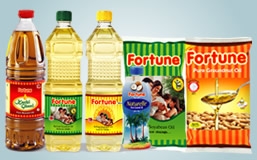
Wilmar International profitability and returns seen to surge soon
Grab the stock for potential gains.
In its latest research report on Wilmar International Ltd, Barclays Research said the agribusiness firm could turn around its sagging fortunes in the near future.
Barclays Research advises investors to snag the stock for what could be forseeable gains since the stock will likely surge on the back of recovery in its key businesses, including sugar and oilseed refining.
Here's the complete report from Barclays Research:
We believe the profitability and returns profile at Wilmar is at a positive inflection point and that the de-rating (while justified) has now gone too far.
Growth in sugar and recovery in other businesses is not priced into the stock at current levels, in our view.
Although perceived as a China demand proxy in soft commodities, the business mix of Wilmar (both upstream and downstream) is changing with increasing exposure to India, ASEAN and Africa at the expense of China. While other more upstream oriented CPO producers have higher leverage to a potential uptick in prices, Wilmar presents a lower risk-play on the same theme, with additional kickers like an improvement in oilseed refining margins and easing of price controls in China. We rate Wilmar as Overweight with a S$4.10 DCF-based PT.
Hedged business model, reduces commodity price volatility: While Wilmar produces over 40% of the world's palm oil, its plantation business is significantly smaller and produces only 10% of its requirements. Margins in the upstream business, although higher, are more volatile and are usually inversely correlated to those in the downstream businesses. While the addition of sugar into the portfolio increases volatility (due to seasonality), we believe Wilmar as a whole should have a more stable earnings profile relative to its peers and that consequently it should trade at higher multiples, not at a 10-25% discount (depending on the metric) as is the case currently.
Sugar and oilseed recovery the key drivers: We believe the sugar business will grow from 6% of group PBT now to 14% over the next two years, which currently is not priced in. A relaxation in price controls in China or an easing of upstream supply constraints in soybean could drive up margins in the oilseeds business, which used to contribute cUS$400mn (23%) of PBT annually in 2007-2011 but fell to almost nothing in 2012.
Key risks: 1) CPO prices – although Wilmar is the least leveraged to commodity prices among big upstream agriculture players, CPO prices are still important; 2) diversification into other commodities – ROEs in the past predominantly dropped due to heavy investments in early-stage businesses; and 3) price controls – any incremental price controls in China (its main market) could impact margins in the key businesses.
























 Advertise
Advertise






